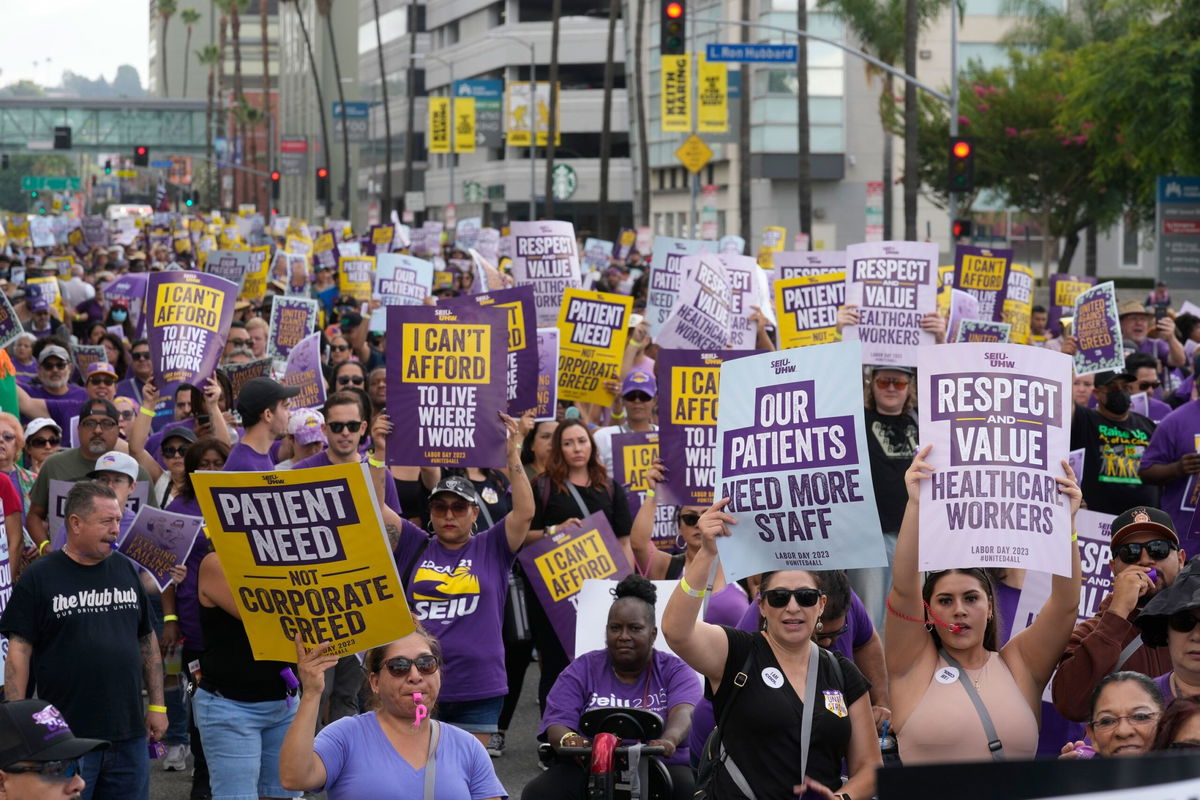Health care is in crisis. The looming strike by 75,000 health workers is just another sign of that


(CNN) — A coalition of eight unions representing 75,000 employees of Kaiser Permanente said late Saturday that is has not reached an agreement with the company, setting the stage for the largest healthcare strike in US history on Wednesday.
The Coalition of Kaiser Permanente Unions, which has workers at hundreds of hospitals and medical offices in California, Oregon, Colorado, Virginia, Washington and Washington, D.C., said in a statement that it remains far apart with the company on important issues but still has had “good discussions with Kaiser.” The healthcare workers are seeking across-the-board pay raises and improvements to their pension plans, as well as protections against outsourcing.
The coalition’s contract with Kaiser officially expired after 11:59 pm PT on Saturday night.
In a statement a few hours before the contract ran out, Kaiser Permanente said that it will continue negotiating “in good faith,” and that operations will continue normally until the planned strike happens on Wednesday.
“Contract expirations do not mean a strike will happen. We remain optimistic that we will reach an agreement and avoid an unnecessary strike,” the company said. “We have contingency plans in place to ensure members continue to receive safe, high-quality care for the duration of the strike.”
Hospitals and emergency departments will stay open, Kaiser added.
The Coalition of Kaiser Permanente Unions told CNN that negotiations are only scheduled through Monday, but that healthcare workers are prepared to negotiate throughout the week. At the same time, frontline workers are continuing to prepare for a strike on Wednesday.
“Healthcare workers want to be in facilities with the patients they care about,” said Renee Saldana of Service Employees International Union-United Healthcare Workers West (SEIU-UHW).
SEIU-UHW is the largest union in the coalition, representing 58,000 Kaiser Permanente workers. “Given the urgency of this staffing crisis, frontline healthcare workers are ready to sit down with Kaiser executives whenever they are ready to bargain in good faith over lasting solutions so patients can be safe and get the care they deserve.”
While doctors, hospital managers, and registered nurses will not be taking part in the strike, the workers involved in the potential strike this week represent a wide array of Kaiser Permanente medical staff, including nursing assistants, optometrists, pharmacists, X-ray and laboratory technicians, genetic counselors, and many others who support hospital operations.
Kaiser’s membership structure, however, protects the company from significant revenue losses. Unlike the fee-for-service model used by most US health care providers, Kaiser patients pay dues to the company in exchange for access to care. Kaiser has 12.7 million members and operates 39 hospitals and 622 medical offices, according to its website.
A strike would come at a time of heightened organized labor activity. There have been nearly 300 strikes in the United States so far this year, according to data compiled by researchers at Cornell University’s School of Industrial and Labor Relations.
The-CNN-Wire
™ & © 2023 Cable News Network, Inc., a Warner Bros. Discovery Company. All rights reserved.